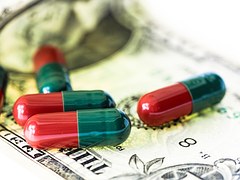Judges, prosecutors and False Claims Act whistleblower attorneys have been asking whether massive pharmaceutical settlements are deterring fraud or are just a cost of doing business for companies.
Record Pharmaceutical Settlements
In the past several years, government prosecutors have blown through the billion dollar mark on settlement recoveries like a plane climbing towards an ever-higher cruising altitude. First Tenet Healthcare ($1.279 billion), then Eli Lilly ($1.314 billion), then Columbia HCA ($1.457 billion), then Abbott Labs ($1.5 billion), then Pfizer ($2.3 billion), and now GlaxoSmithKline ($3 billion), upwards and upwards we go to each new historic high. Why, you might wonder, are the fraud settlements getting bigger and bigger? And why aren’t these precedents slowing down the bad behavior?
You would not be alone in asking these questions. As he accepted the plea agreement in the Pfizer settlement (in which the company pled to misdemeanor with a $ 1 billion fine attached), Judge Woodlock here in Boston asked some pointed questions of prosecutors. With companies ready to shed their skin “like certain animals,” sacrificing a subsidiary to the government with the corporate parent going on merrily about its way, are we actually getting anywhere in the fight against fraud? And, if a company committed a billion dollar crime, how it is that no individuals have been held accountable in a criminal court for such a massive fraud?
More recently, one law professor, tallying up the string of settlements from the last few years asked if Glaxo’s $3 billion penalty was “sufficient” or was it just a cost of doing business.
Two Contradictory Trends
Two things seem clear from the last ten years of health care fraud and False Claims Act prosecutions. First, industry has taken notice. More and more companies have deep compliance departments. They are making serious efforts to avoid becoming the next statistic on DOJ’s website and to avoid supervision and reporting requirements from the HHS/OIG. Second, notwithstanding these efforts, many whistleblower claims continue to emerge from the health care sector. And many of these cases result in record-breaking settlements.
How to reconcile these two thoughts? Our view is that most of these companies are huge institutions, in which responsibility is diffused throughout the organization, and control of what is going on in the field becomes difficult if not impossible. Driven to increase shareholder value and maximize profits, public companies have a difficult time resisting ways to make easy money. Government health insurance programs, which pay out roughly one trillion dollars ($1,000,000,000,000) per year on an honor system, are easy targets. So even companies serious about compliance have a difficult time controlling the profit-maximizing impulses of their employees (at all levels of the companies). As long as they keep compensating salespeople based on volume of product sold, the cases will keep coming.
Large Pharmaceutical Settlements Are Insufficient To Deter Fraud
So we say, no, it’s not enough. These big civil settlements are great accomplishments and they get people’s attention. But, until top decision-makers at these companies start wondering whether their livelihoods or even their liberty are at stake, this plane will just keep on climbing.

